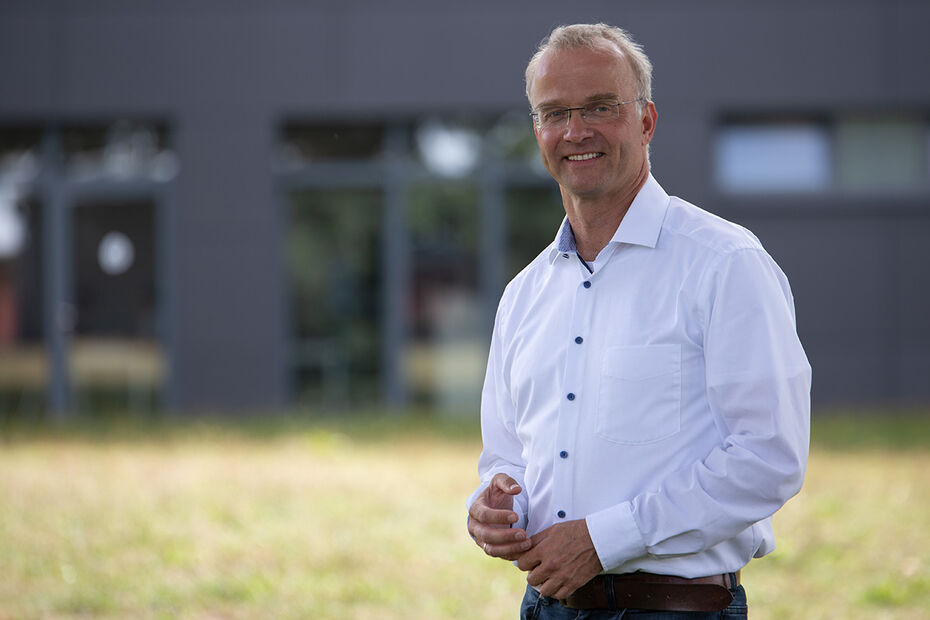Content from video platforms and social media platforms is blocked by default. If cookies from external media are accepted, access to this content no longer requires manual consent.
Hide Cookie Information
OpenStreetMap
In order for the maps of OpenStreetMap to be displayed on a website, the user's IP address is saved on an OpenStreetMap server and a cookie is set.
| Provider: | openstreetmap.org |
YouTube Videos
A direct connection to YouTube’s servers will not be established until you have activated videos autonomously at your end (i.e. given your consent pursuant to Art. 6 Sect. 1 lit. a GDPR). Once you have activated the service, YouTube will store your IP address. By loading the video, you agree to Google's privacy policy.
| Provider: | YouTube / Google LLC |
| Privacy source url: | https://policies.google.com/privacy?hl=en |
Google Maps
A direct connection to Google’s servers will not be established until you have activated Google Maps autonomously at your end (i.e. given your consent pursuant to Art. 6 Sect. 1 lit. a GDPR). Once you have activated the service, Google Maps will store your IP address. By loading the map, you agree to Google's privacy policy.
| Provider: | Google LLC |
| Privacy source url: | https://policies.google.com/privacy?hl=en |
SoundCloud
A direct connection to SoundCloud’s servers will not be established until you have activated items autonomously at your end (i.e. given your consent pursuant to Art. 6 Sect. 1 lit. a GDPR). Once you have activated the service, SoundCloud will store your IP address. By loading, you agree to SoundCloud's privacy policy.
| Provider: | SoundCloud Limited |
| Privacy source url: | https://soundcloud.com/pages/privacy |
Google Calendar
A direct connection to Google's servers is only established when you activate Google Calendar yourself (consent according to Art. 6 para. 1 lit. a DSGVO). After activation, Google Calendar will store your IP address. By loading the calendar, you accept Google's privacy policy.
| Provider: | Google LLC |
| Privacy source url: | https://policies.google.com/privacy?hl=en |
| Host: | google.com |
Public tenders of the TH
A direct connection to the servers of "Deutsches Ausschreibungsblatt" is only established when you activate the external content yourself (consent according to Art. 6 para. 1 lit. a DSGVO). After activation, these servers will store your IP address. By loading the external content, you accept the provider's data protection declaration.
| Provider: | deutsches-ausschreibungsblatt.de |
| Privacy source url: | https://www.deutsches-ausschreibungsblatt.de/datenschutz |
| Host: | https://www.deutsches-ausschreibungsblatt.de/ |
BITE applicant management
A direct connection to BITE servers is only established when you activate the external content yourself (consent according to Art. 6 para. 1 lit. a DSGVO). After activation, these servers will store your IP address. By loading the external content, you accept the provider's data protection declaration.
| Provider: | b-ite.de |
| Privacy source url: | https://www.b-ite.de/legal-notice.html |
Podigee Podcast-Hosting
A direct connection to Podigee servers is only established when you activate the external content yourself (consent according to Art. 6 para. 1 lit. a DSGVO). After activation, these servers will store your IP address. By loading the external content, you accept the provider's data protection declaration.
| Provider: | Podigee GmbH |
| Privacy source url: | https://www.podigee.com/en/about/privacy |
| Host: | https://www.podigee.com/ |
360° Tour
A direct connection to 3D Vista servers is only established when you activate the external content yourself (consent according to Art. 6 para. 1 lit. a DSGVO). After activation, these servers will store your IP address. By loading the external content, you accept the provider's data protection declaration.
| Provider: | 3D Vista |
| Privacy source url: | https://www.3dvista.com/en/privacy_policy/ |
| Host: | https://www.3dvista.com/ |
rapidmail Newsletter-Tool
A direct connection to rapidmail servers is only established when you activate the external content yourself (consent according to Art. 6 para. 1 lit. a DSGVO). After activation, these servers will store your IP address. By loading the external content, you accept the provider's data protection declaration.
| Provider: | rapidmail |
| Privacy source url: | https://www.rapidmail.de/datenschutz |
| Host: | https://www.rapidmail.de/ |
Userlike
A direct connection to the servers of Userlike is only established when you activate the external content yourself (consent according to Art. 6 para. 1 lit. a DSGVO). After activation, these servers will store your IP address. By loading the external content, you accept the provider's data protection declaration.
| Provider: | Userlike |
| Privacy source url: | https://www.userlike.com/en/terms#privacy-policy |
| Host: | https://www.userlike.com/ |

